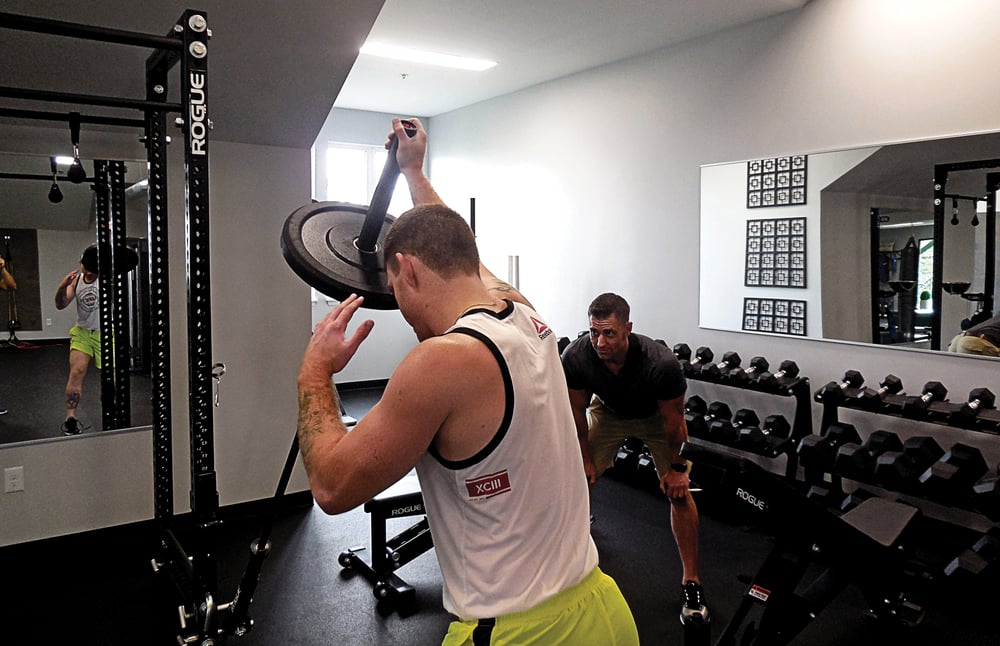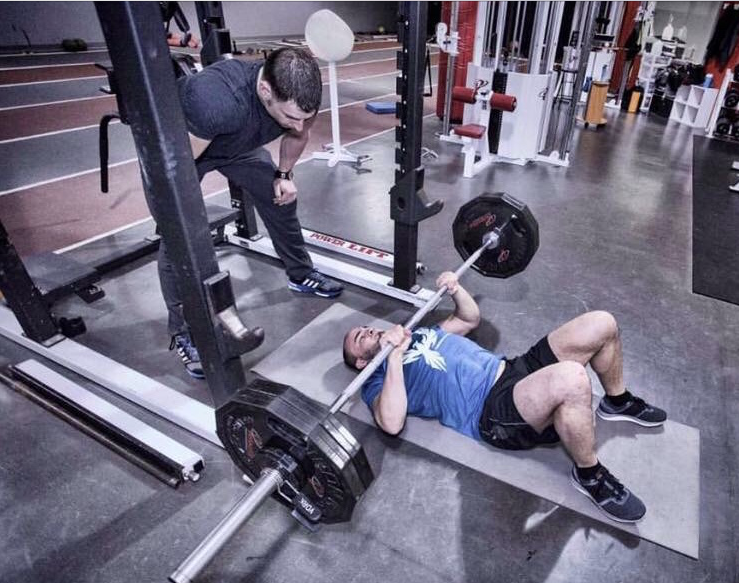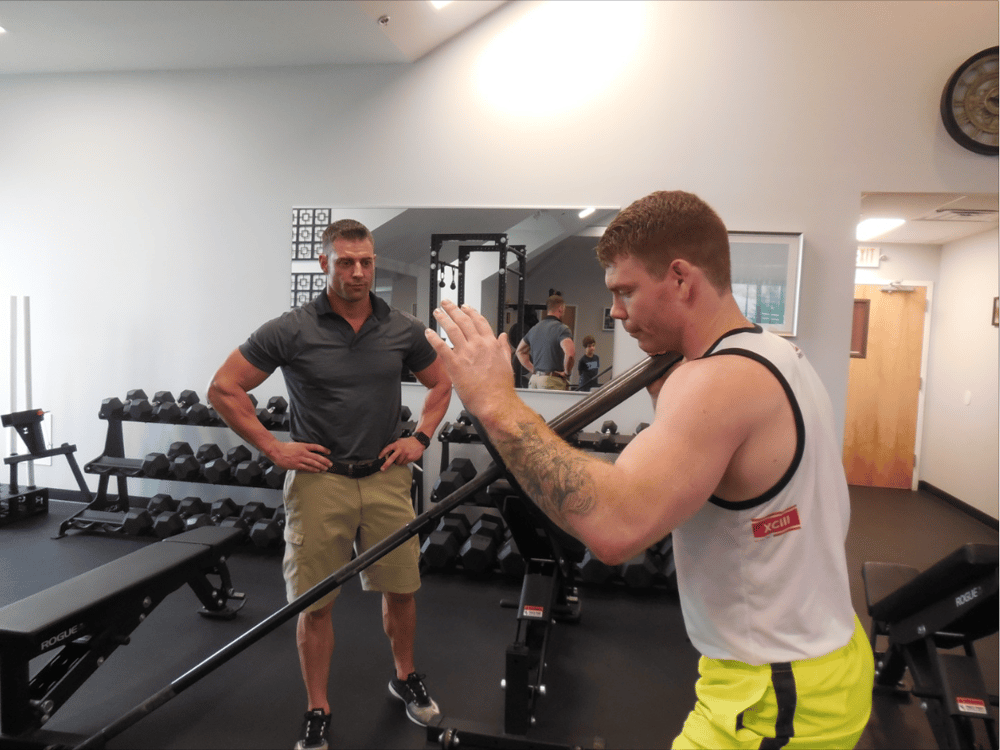
Issue 162
December 2017
Why taking the smart approach to over-training means you won’t be beaten before you fight.
Rich Pohler, a certified S&C specialist, shows you how to spot and overcome overtraining.

SPOT THE SIGNS:
- GET SMART
I definitely believe in overtraining, especially in strength and conditioning. Everyone thinks more is better, but if you systematize everything in a way it reduces the risk of you overtraining and getting hurt. The old saying is no pain, no gain. I don’t believe in that. No brain, no gain!
- KNOW YOUR BODY
A lot of these guys tend to fight through pain, but when you have pain, you have inflammation and that’s going to be a detriment to your performance, big-time.
- FOLLOW YOUR HEART
A change in their heart rate is a good indication of overtraining, too. When you first wake up in the morning and track heart rates for a few days with relatively high readings, that’s indicative of overtraining. I track fighters’ heart rates during fighter-simulated training by looking at their recovery in their one-minute rest after five minutes of work.
For instance, as the fight gets closer, if they get up to 180bpm and recover to 110, that’s a significant drop and I know they’re pretty efficient. If they’re not dropping the way I want them to, I know we need to back off on the intensity and duration so we don’t overtrain.

HOW TO OVERCOME OVERTRAINING:
- DON'T FIGHT IT
If your body does start to hurt, you have to ease your way through the pain, not power through it. If a fighter tells me they have any kind of injury, unusual soreness or stiffness, we reduce the intensity of training and create modalities to expedite the healing process.
- DIAL IT BACK
I’ll ask how many times a fighter is training in a day. If they’re doing three sessions and taking one day off a week, I’ll ask them to back off maybe one session per day. I can’t control everything – just what’s under my prescription for strength and conditioning – so I change their work-rest ratios.
During the five-minute rounds of fighter-simulated training, I’ll change the intervals to 10 seconds of all-out work and 20 seconds of recovery to give them more time to heal up. You have to be careful.
- EASY DOES IT
We start at a fight camp at a lower percentage, then increase the percentage by each week. It’s only small percentages, 2% to be exact, but I know they’re hitting all cylinders when they’re hitting their strength training numbers about two weeks out from a fight.
Also during fighter-simulated circuits, if an athlete needs to do more work to get their heart up to a higher rate and they recover to a much lower rate, I know they’re firing on all cylinders and ready to go.
- CHANGE IT UP
If you take a step back from sparring to reduce the intensity of your training for a few days, I’d suggest working on creating certain situations in a fight and mimicking those situations where they’re not taking impact – just getting a sweat on and keeping their mind into it.
The main thing is these guys want structure. They have to have some kind of regimen. Don’t deviate from their schedule.

LEARN FROM THE PROS:
- SUFFER THE CONSEQUENCES
I’ve seen guys get sick, have their immune system suppressed, have their appetite suppressed, or hold onto weight because they’re stressed and are more vulnerable to injury. I equate fatigue to digging a ditch. When it becomes deep, it’s going to take a long time to get out of it.
- SAVE YOURSELF
These guys have got to fight through pain. They feel that if they go through a training camp and they’re not hurting in some way, they really didn’t go through a camp. I get it. But there will come a point when you can’t throw a punch as hard because you have some kind of pain due to inflammation. You have to back off. I wouldn’t want to lose a fight because I lacked that kind of power and stamina because I had some kind of injury.
- A CHAMPION'S MINDSET
The younger guys think they need to prove themselves so they can ignore the symptoms and fight through it.
I understand they want to fight through it and get the best out of their training, but sometimes more is not better. Veterans are pretty aware of what’s going on in their bodies because they learned from their mistakes and that is part of the fight game. A Paul Felder or Eddie Alvarez will kind of understand they need to back away and take a day off.
...









